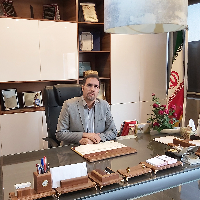The rights of Detained persons from the perspective of the Iranian Code of Criminal Procedure and the rules of the International Criminal Court
The accused should not be considered a criminal at any stage of the trial, and this requires observing the principle of prohibition of unlawful detention of persons and guaranteeing the rights of detainees during the trial and treating them appropriately and with dignity during the trial and detention. The principle is based on freedom, and the arrest of individuals is an exception to this principle. Hence, this exception conflicts with the principle of immunity of citizens from arbitrary arrest or detention, which is rooted in the principle of innocence, and this requires that the legal criteria for the arrest and detention of individuals be precisely defined.
This is a qualitative and applied research in terms of purpose and in terms of collecting information by documentary method and studying international documents, sources related to the subject and the obtained information has been analyzed descriptively-analytically.
In addition to the rights of the interrogation and preliminary investigation, in particular the right to be informed of the charges and the rights of the accused, detainees have the right to be immediately examined by a competent judicial authority to verify the lawfulness of the detention and enjoy other legal rights. And also to protest their legal detention from the beginning of their arrest until their release. Of course, it must be possible to compensate these detainees if their detention is illegal. This is the minimum legal rights of detainees as enshrined in the Code of Criminal Procedure and the Rules and Procedures of Case Courts and the International Criminal Court.
-
The Necessity of Special Police for Children and Adolescents in the Differential Justice System
JAVAD TAHMASEBI *, , Batool Pakzad, Alinaser Kolivand
Judicial Law Views Quarterly (Law Views), -
Restorative policing; With emphasis on Iran, France and the United Kingdom
Abbas Tadayon *, Aref Khalilipachi
Journal of Legal and Policing Research,



